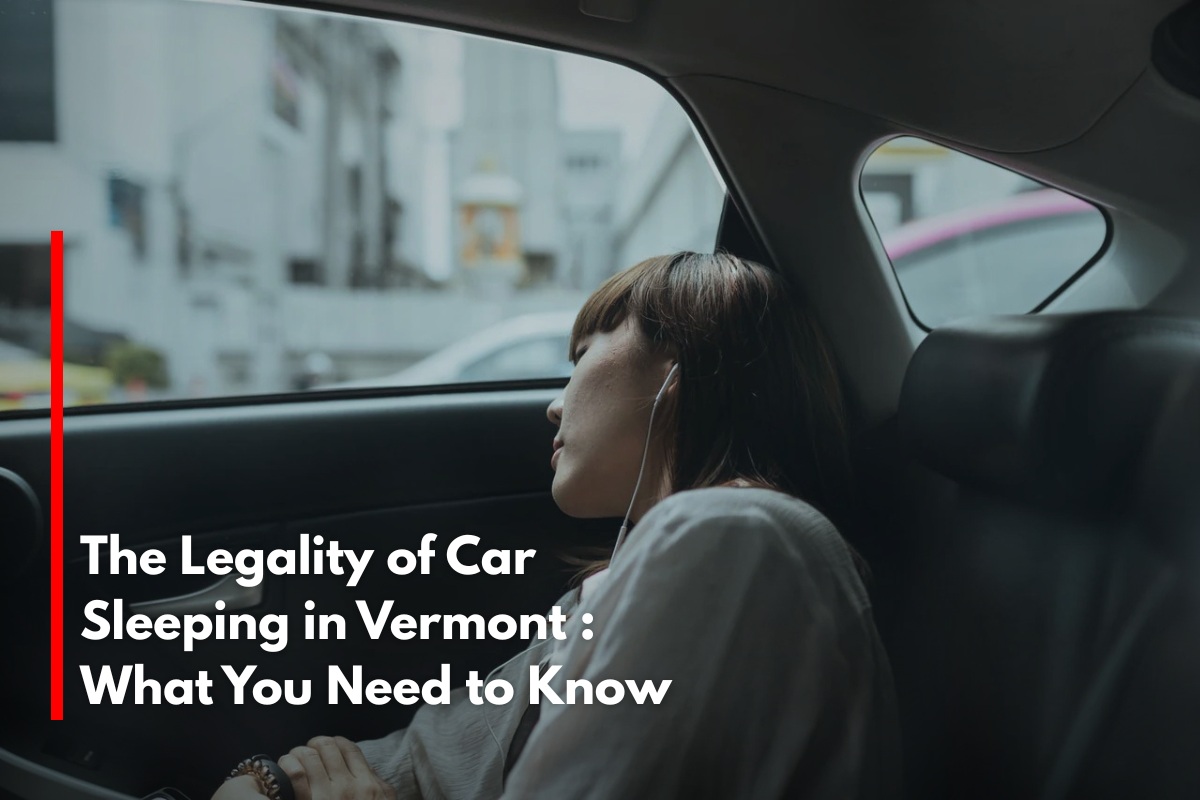Sleeping in your car in Vermont can be a practical solution for travelers and those needing rest, but understanding the legal landscape is essential to stay within the law and avoid potential issues. Here’s what you need to know about the legality of car sleeping in Vermont.
Vermont Law on Overnight Camping vs. Sleeping in Vehicles
Vermont law, specifically 19 V.S.A. § 1106, prohibits overnight camping in certain public areas such as rest areas, highway rights-of-way, and public lands not designated for camping.
The law fines individuals up to $50 per day for violations. However, “overnight camping” is legally distinct from “sleeping in a vehicle.” Camping generally means setting up tents, sleeping outside the vehicle, or engaging in recreational camping activities.
Sleeping inside a parked vehicle to rest or catch sleep is not explicitly prohibited under Vermont law, and police typically recognize this distinction. The key principle is that as long as you remain inside your car and are not engaging in camping activities outside, you are unlikely to face penalties.
Rest Areas and Parking Regulations
Vermont allows overnight parking and sleeping in vehicles at designated rest areas, which are open 24/7 for travelers needing rest. There is no statewide time limit set for how long you may stay, but staying over 24 hours might prompt attention from law enforcement who could investigate further.
That said, actual camping or activities such as setting up chairs or cooking outside the vehicle at rest stops can lead to citations for “overnight camping,” which Vermont prohibits.
Practical Tips for Sleeping in Your Car Legally and Safely
Remain inside your vehicle at all times while resting to avoid being seen as camping.
Use window shades or curtains to block light, which helps indicate to law enforcement that you are resting, not recreating outdoors.
Choose safe and legal parking areas, such as interstate rest stops or 24-hour businesses that permit overnight parking.
Avoid parking on highway shoulders or public highways where no parking is permitted, as this can result in fines or towing.
Follow local rules posted on signs or by local law enforcement for the specific parking spot or rest area.
Safety and Health Considerations
Sleeping in a car can pose health risks if you do not ventilate properly or if the vehicle engine is running excessively in cold weather due to carbon monoxide risk. Vermont’s vehicle idling law limits extended engine idling, but exceptions are made for occupant health and safety. It’s best to crack a window for ventilation and ensure the vehicle is parked securely on level ground.
In Vermont, sleeping in a vehicle is generally legal, especially at rest areas and designated parking spots, so long as you do not engage in overnight camping activities outside your vehicle.
Vermont law prohibits camping in public highway areas and many rest stops, but does not criminalize simply resting or sleeping inside your car. Following local regulations, respecting signage, and prioritizing safety will help ensure a smooth and legal car-sleeping experience in Vermont.
Sources
(https://legislature.vermont.gov/statutes/section/19/011/01106)
(https://www.boondockersbible.com/learn/vermont-rest-area-rules/)
(https://legislature.vermont.gov/statutes/section/23/013/01110)
(https://www.reddit.com/r/vermont/comments/1fsjxkp/places_to_sleep_in_car/)
(https://dubslabs.com/blogs/dubslabs-blog/blog-sleeping-in-the-car-how-to-stay-legal-and-safe)











